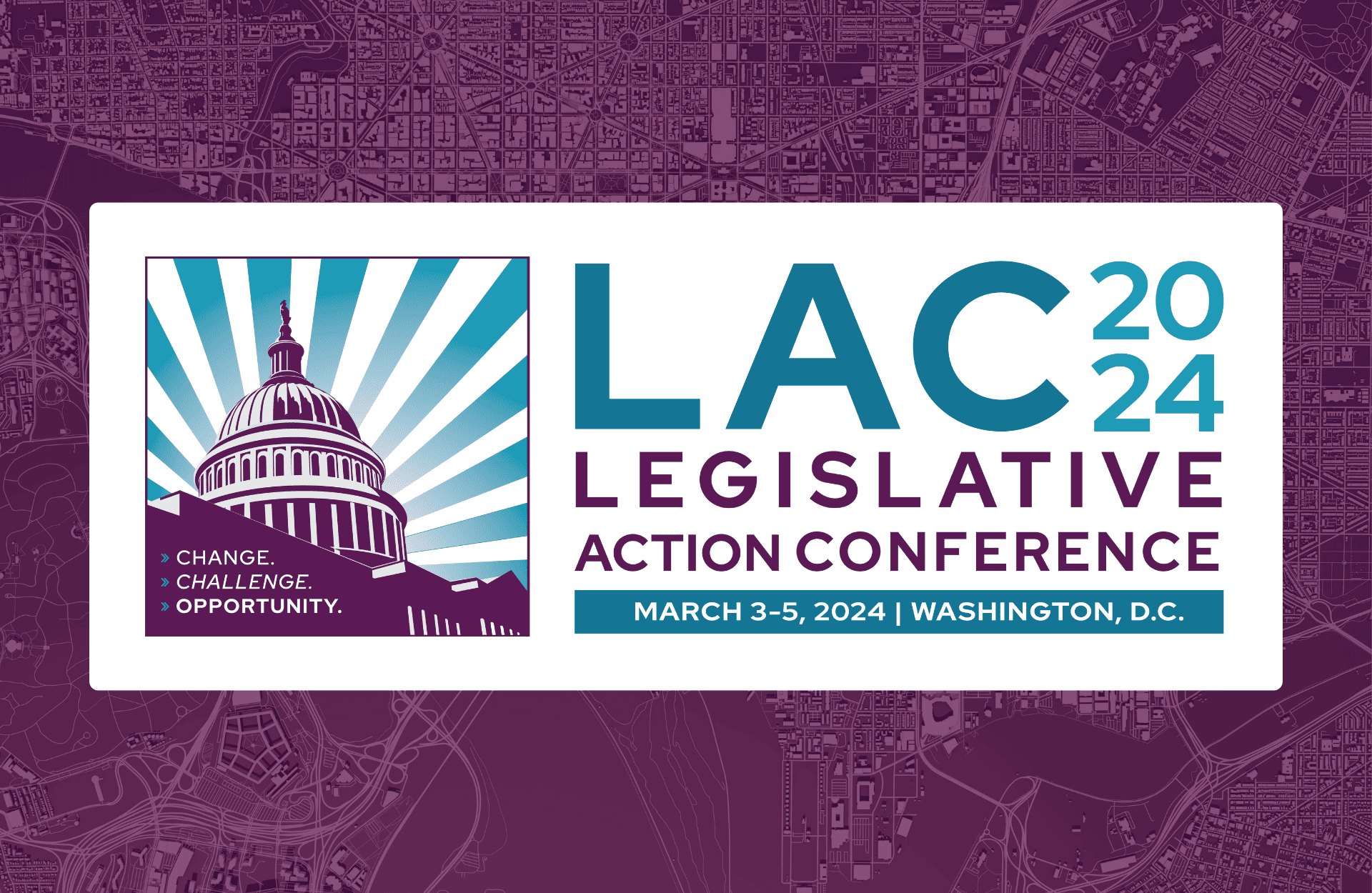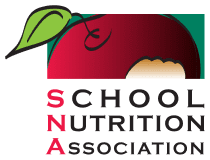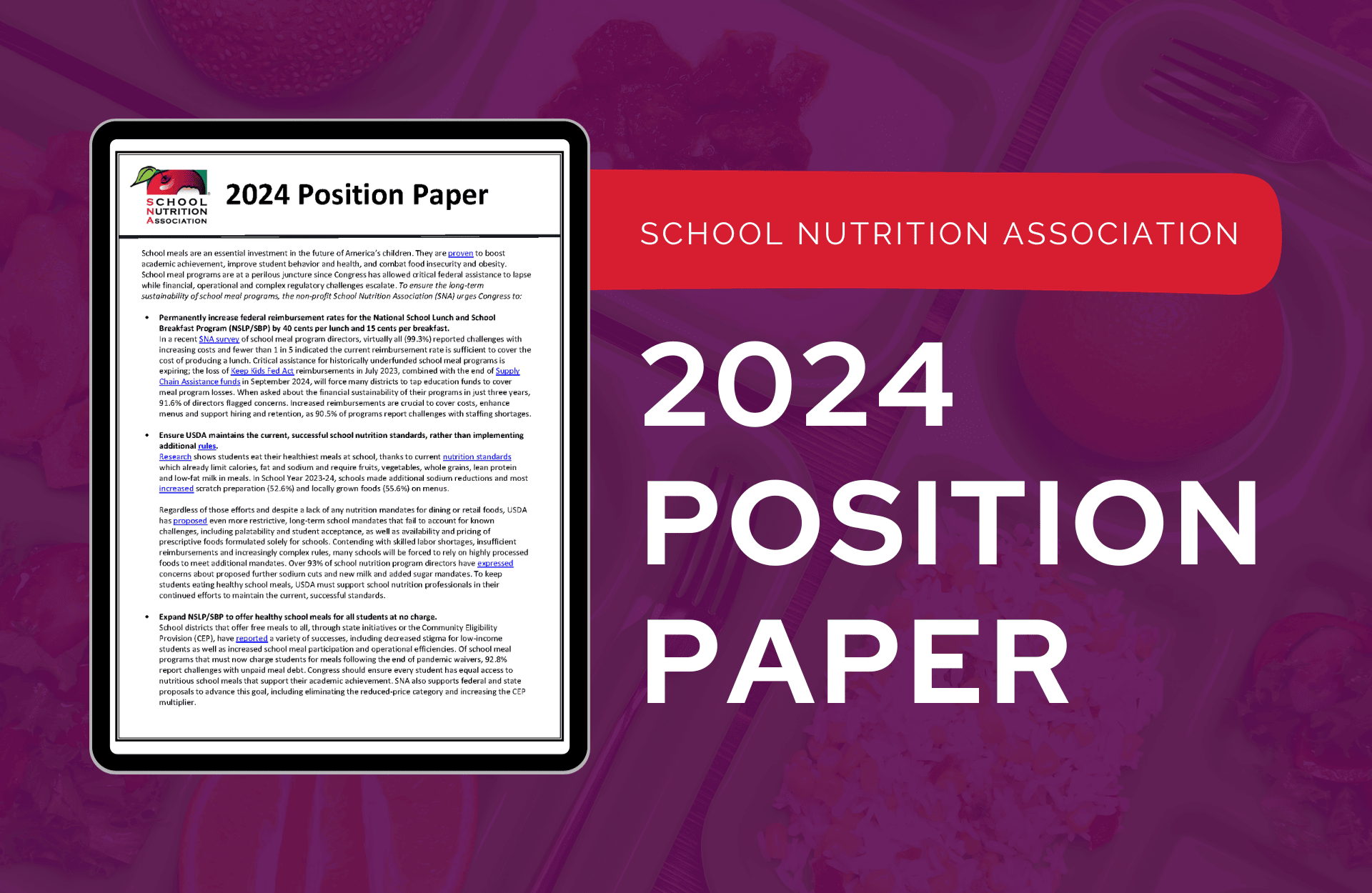FOR IMMEDIATE RELEASE:
Contact: Diane Pratt-Heavner
301-686-3124
media@schoolnutrition.org
School Cafeteria Professionals Call on Congress to Act
2015-09-08
SNA Requests More Money and Menu Planning Options
NATIONAL HARBOR, MD – With school and Congress back in session, attention has turned to the Healthy, Hunger-Free Kids Act, set to expire on September 30. The non-profit School Nutrition Association (SNA) is calling on Congress to pass a strong Child Nutrition Reauthorization bill providing school nutrition professionals more funding and flexibility to provide healthy, appealing meals for students.
“As Congress works to improve the Healthy, Hunger-Free Kids Act, it is critical that they hear from school nutrition professionals working on the frontlines in school cafeterias,” said Jean Ronnei, SNS, School Nutrition Association President and Chief Operations Officer for Saint Paul Public Schools in Minnesota. “To sustain the progress we have achieved for students, Congress must maintain strong federal nutrition standards while providing more funding and options for school meal planners to appeal to diverse student tastes.”
SNA, which represents 55,000 school nutrition professionals working in cafeterias nationwide, continues to hear from members who have encountered a variety of challenges as they work to improve school menus and meet federal standards.
A recent SNA study found that despite widespread efforts to promote healthier choices to students, 58% of responding school meal programs had experienced a decline in lunch participation under the new standards. Results echo data from USDA showing more than a million fewer students choose school lunch each day under the new rules. This trend reduces revenue for programs already struggling with the higher cost of meeting the rules.
Findings revealed nearly eight in ten programs have had to take steps to offset financial losses – steps that could hinder continued efforts to improve menus. Almost half reduced staffing, and many cut into reserve funds, cancelled or deferred equipment purchases and even limited menu choices. Respondents cited these unintended consequences in open-ended responses to the survey:
SNA is asking Congress to maintain the overwhelming majority of the new rules, including caps on calories, saturated and trans fats and mandates to offer larger servings and a wider variety of fruits and vegetables. To address challenges under the new rules, SNA requests a 35 cent increase to the federal reimbursement for school meals and flexibility on a few of the new rules (see www.schoolnutrition.org/PositionPaper for details).
“We are all committed to providing healthy meals for students, which is why SNA is asking Congress to address the unintended consequences of the rules,” said Ronnei.
Additional feedback gathered from school nutrition professionals surveyed includes:
In June, when the House Education and Workforce Committee discussed the cost of complying with the new rules, SNA shared similar concerns from cafeterias across the country.
About School Nutrition Association:
The School Nutrition Association (SNA) is a national, non-profit professional organization representing 55,000 school nutrition professionals across the country. Founded in 1946, SNA and its members are dedicated to making healthy school meals and nutrition education available to all students. For more information on school meals, visit www.schoolnutrition.org/SchoolMeals.
Related Articles

Agriculture Secretary Vilsack to Speak at SNA’s LAC
Read More




